Speakers
Description
Understanding the capabilities of classical simulation methods is key to identifying where quantum computers are advantageous. Not only does this ensure that quantum computers are used only where necessary, but also one can potentially identify subroutines that can be offloaded onto a classical device.
Motivated by these considerations, in our recent works [1,2], we present a classical algorithm for simulating and surrogating quantum circuits. Our approach employs a Pauli-path method under Heisenberg evolution. While prior research on Pauli-path simulation primarily focuses on noisy quantum circuits, we extend classical simulability to noiseless regimes.
We provide time and sample complexity guarantees for various families of circuits commonly used in variational quantum algorithms and quantum dynamics simulation, with potential applications spanning fields such as high-energy physics. Additionally, we numerically validate our simulation algorithms on an exactly verifiable Hamiltonian variational ansatz and a long-time dynamics simulation of a 127-qubit heavy-hex topology.
These simulations were performed using the PauliPropagation.jl package, which we have made publicly available [3].
[1] Angrisani, Armando, Alexander Schmidhuber, Manuel S. Rudolph, M. Cerezo, Zoë Holmes, and Hsin-Yuan Huang. "Classically estimating observables of noiseless quantum circuits." arXiv preprint arXiv:2409.01706 (2024).
[2] Lerch, Sacha, Ricard Puig, Manuel S. Rudolph, Armando Angrisani, Tyson Jones, M. Cerezo, Supanut Thanasilp, and Zoë Holmes. "Efficient quantum-enhanced classical simulation for patches of quantum landscapes." arXiv preprint arXiv:2411.19896 (2024).
[3] https://github.com/MSRudolph/PauliPropagation.jl
Email Address of submitter
acl.angrisani@gmail.com
